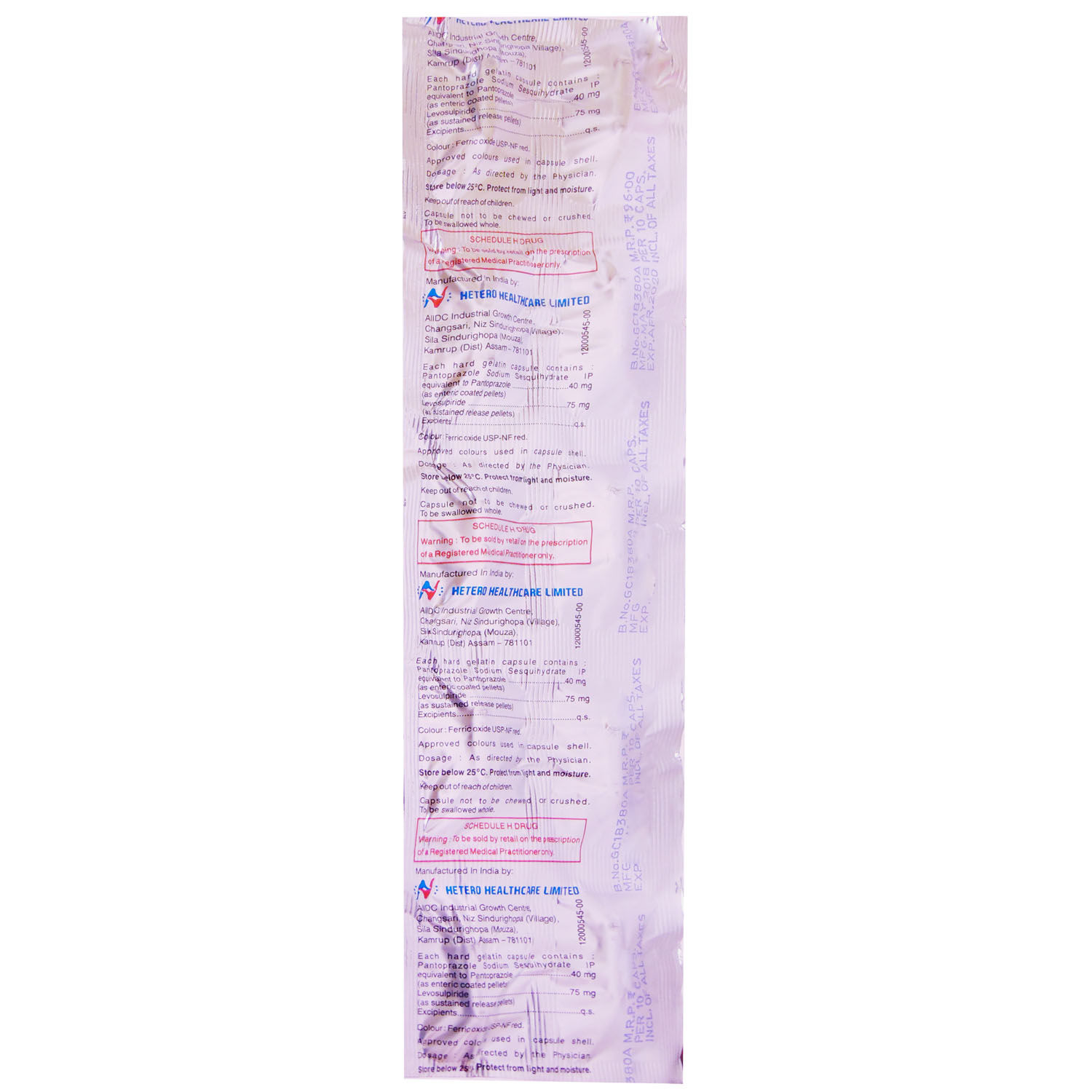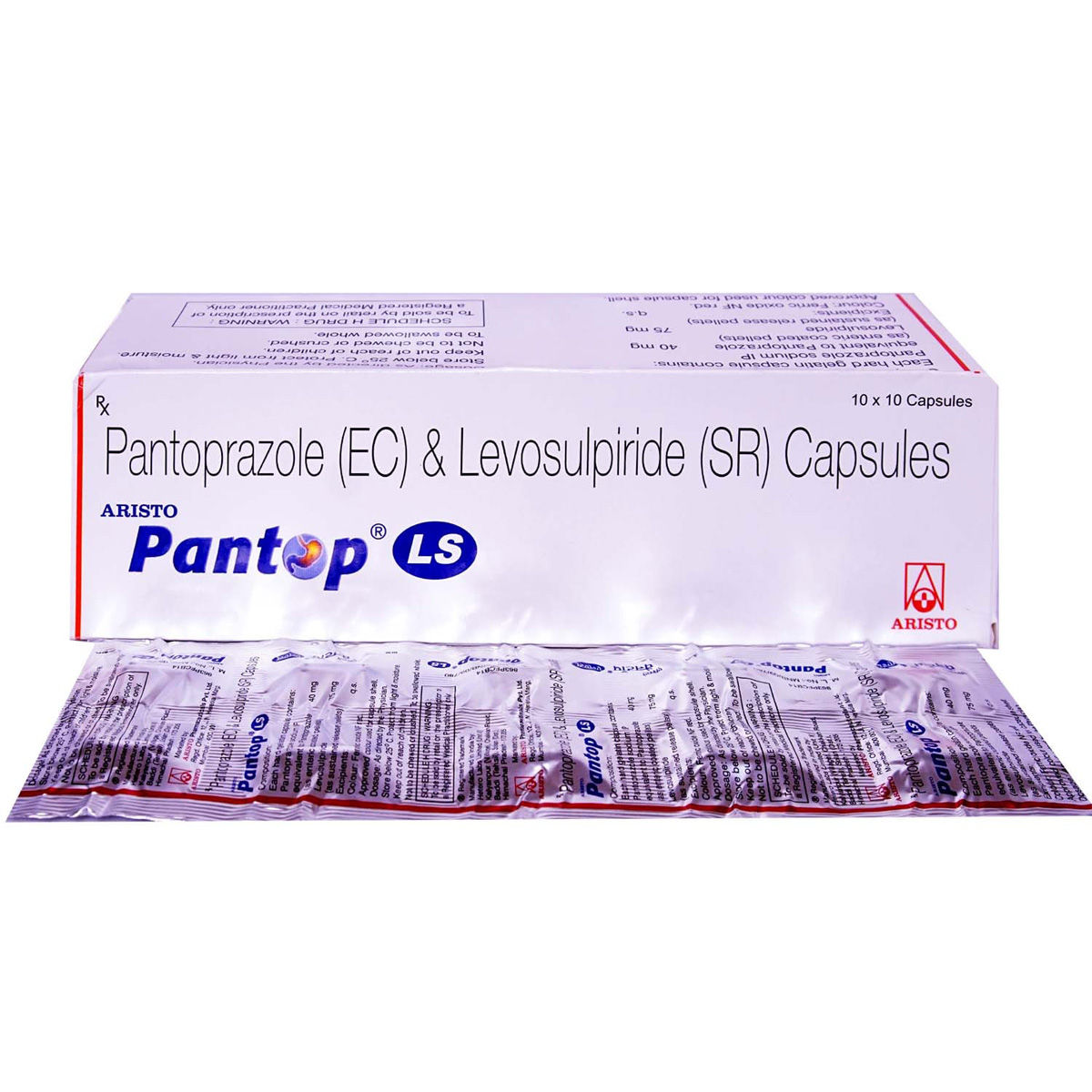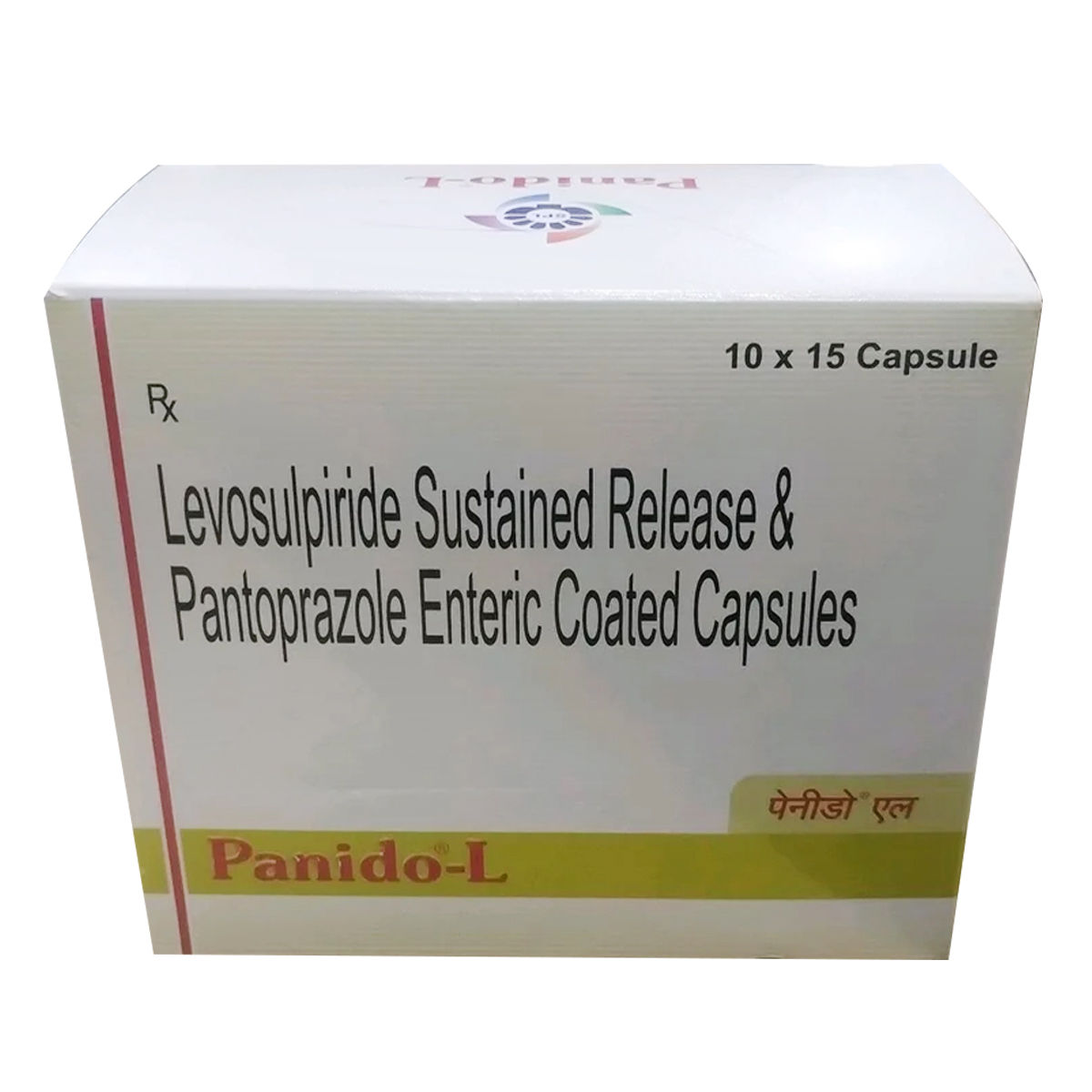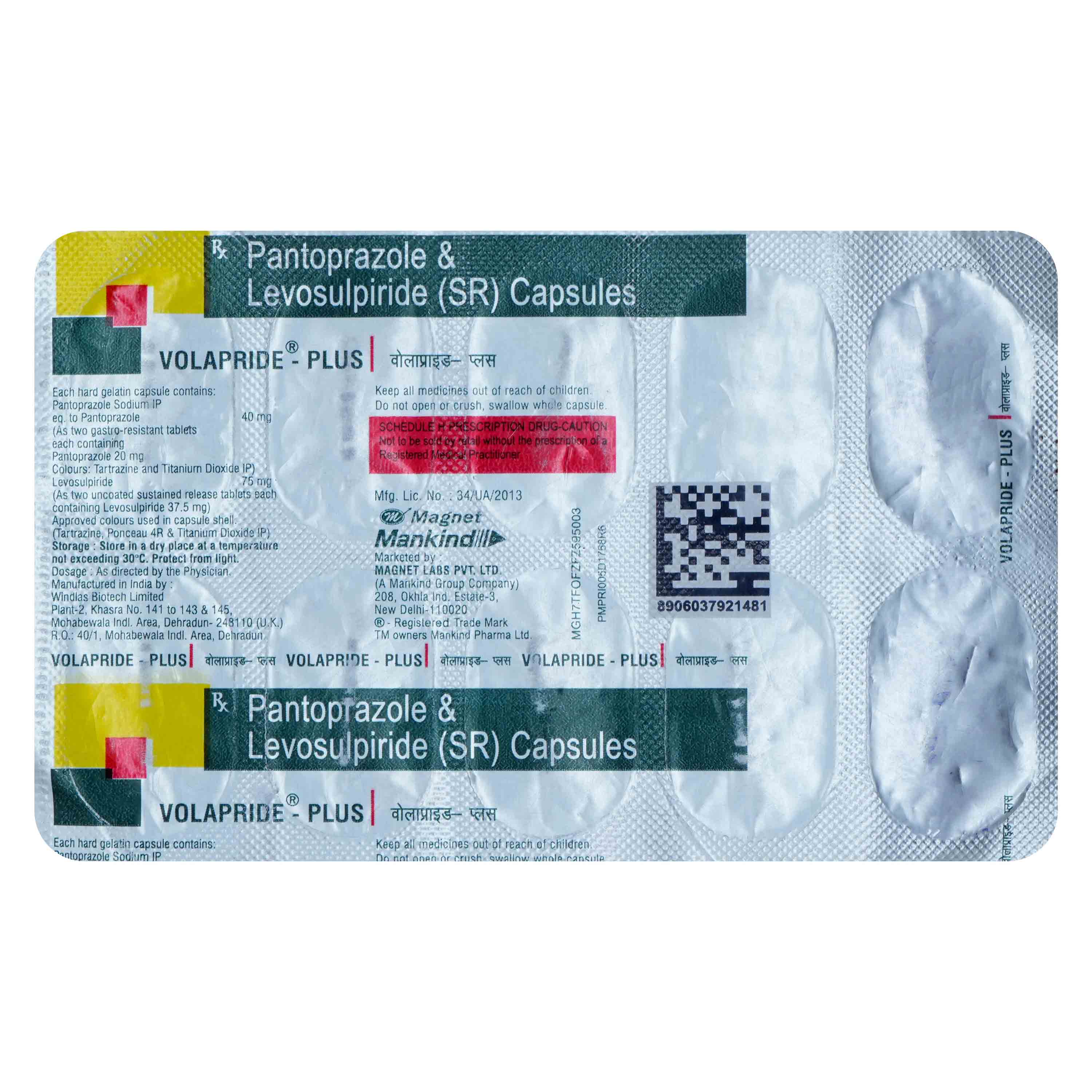Pantium-L Capsule 10's
₹267.1*
MRP ₹303.5
12% off
₹267.08*
MRP ₹303.5
12% CB
₹36.42 cashback(12%)
Free Delivery
With Circle membership
(Inclusive of all Taxes)
This offer price is valid on orders above ₹800. Apply coupon PHARMA10/PHARMA18 (excluding restricted items)
Know Your Delivery Time
Provide Delivery Location





Whats That

Secure Payment

India's Most Trusted Pharmacy

Genuine Products
Composition :
Manufacturer/Marketer :
Consume Type :
Return Policy :
Expires on or after :
About Pantium-L Capsule
Pantium-L Capsule belongs to a group of medicines called gastrointestinal agents used to treat gastro-oesophageal reflux disease (GERD), acidity, indigestion, heartburn, and peptic ulcers. Gastroesophageal reflux disease occurs when stomach acid frequently flows back into the food pipe (oesophagus); this causes acidity and heartburn. Peptic ulcers are sores that develop on the inner lining of the intestine and stomach.
Pantium-L Capsule is a combination of two drugs, namely: Pantoprazole (proton pump inhibitor) and Levosulpiride (prokinetic agent). Pantoprazole works by blocking the action of an enzyme called gastric proton pump, which is responsible for the production of acid. Levosulpiride works by increasing the pressure of the inferior oesophageal (food pipe) sphincter, thereby preventing the backflow of food and acid into the mouth. Together, Pantium-L Capsule helps in preventing acid reflux, thereby providing relief from acidity and heartburn.
You are advised to take Pantium-L Capsule as long as your doctor has prescribed it for you, depending on your medical condition. In some cases, you may experience certain common side effects such as headache, nausea, vomiting, gas, dry mouth, dizziness and diarrhoea. Most of these side effects do not require medical attention and will resolve gradually over time. However, you are advised to talk to your doctor if you experience these side effects persistently.
Inform your doctor before taking Pantium-L Capsule if you have a history of gastrointestinal bleeding or intestinal obstruction. On long-term treatment, Pantium-L Capsule may cause osteoporosis and hypomagnesemia (low magnesium levels). Consult your doctor if you are pregnant or breastfeeding. Pantium-L Capsule may cause drowsiness and dizziness, so drive only if you are alert. Pantium-L Capsule should not be given to children as safety has not been established. Avoid consuming alcohol along with Pantium-L Capsule as it could lead to increased drowsiness and can elevate the production of stomach acid.
Uses of Pantium-L Capsule
Medicinal Benefits
Pantium-L Capsule belongs to a group of medicines called gastrointestinal agents used to treat gastro-oesophageal reflux disease, acidity, indigestion heartburn, and peptic ulcers. Pantium-L Capsule is a combination of two drugs, namely: Pantoprazole (proton pump inhibitor) and Levosulpiride (prokinetic agent). Pantoprazole works by blocking the action of an enzyme called gastric proton pump, which is responsible for the production of acid. Levosulpiride works by increasing the pressure of the inferior oesophageal (food pipe) sphincter, thereby preventing the backflow of food and acid into the mouth. Together, Pantium-L Capsule helps in preventing acid reflux, thereby provides relief from acidity and heartburn.
Side Effects of Pantium-L Capsule
- Headache
- Nausea
- Vomiting
- Gas
- Dry mouth
- Dizziness
- Diarrhoea
Directions for Use
Storage
Drug Warnings
Do not take Pantium-L Capsule if you are allergic to any of its contents. Inform your doctor if you have a history of pheochromocytoma (tumour of the adrenal gland), epilepsy, mania, gastrointestinal bleeding, intestinal obstruction, or severe kidney and liver impairment. Pantium-L Capsule may cause osteoporosis (weak and brittle bones) and hypomagnesemia (low magnesium levels) on long-term treatment. Consult your doctor if you are pregnant or breastfeeding. Pantium-L Capsule may cause dizziness and drowsiness, so drive only if you are alert. Pantium-L Capsule should not be given to children as safety and effectiveness have not been established. Avoid consuming alcohol along with Pantium-L Capsule as it could lead to increased drowsiness and can elevate the production of stomach acid.
Therapeutic Class
Drug-Drug Interactions
Drug-Food Interactions
Diet & Lifestyle Advise
Avoid smoking and alcohol consumption. Alcohol intake leads to increased production of stomach acid, thereby increasing acidity and heartburn.
Eat smaller meals more often.
Maintain a healthy weight by regular exercising.
Avoid lying down after eating.
Avoid tight-fitting clothes.
Maintain a healthy weight by regular exercising.
Practise relaxation techniques and avoid stress by doing yoga or meditation.
Avoid foods such as high-fat food, spicy food, chocolates, citrus fruits, pineapple, tomato, onion, garlic, tea and soda.
Avoid sitting continuously as it may trigger acidity. Take a break of 5 minutes every hour by doing brisk walking or stretching.
Habit Forming
How Pantium-L Capsule Works
What if I have taken an overdose of Pantium-L Capsule
Alcohol
Unsafe
Avoid consumption of alcohol while taking Pantium-L Capsule . Alcohol intake leads to increased production of stomach acid, thereby increases acidity and heartburn.
Pregnancy
Caution
Consult your doctor before taking Pantium-L Capsule if you are pregnant; your doctor will prescribe only if the benefits outweigh the risks.
Breast Feeding
Caution
Pantium-L Capsule may pass into breast milk. Consult your doctor before taking Pantium-L Capsule ; your doctor will decide whether Pantium-L Capsule can be taken by breastfeeding mothers or not.
Driving
Caution
Pantium-L Capsule causes dizziness and drowsiness. Do not drive or operate machinery unless you are alert.
Liver
Caution
Dose adjustment may be needed. Consult your doctor before taking Pantium-L Capsule if you have a liver impairment or any concerns regarding this.
Kidney
Caution
Dose adjustment may be needed. Consult your doctor before taking Pantium-L Capsule if you have kidney impairment or any concerns regarding this.
Children
Unsafe
Pantium-L Capsule should not be given to children as the safety and effectiveness were not established.
Country of origin
Manufacturer/Marketer address
Author Details
We provide you with authentic, trustworthy and relevant information
Pantium-L Capsule Substitute

Pantocid L Capsule 10's
₹26.10per tabletPan-L Capsule 10's
₹25.92per tabletPantin L Capsule 10's
₹14.22per tabletPantop LS Capsule 10's
₹24.30per tabletPansec L Capsule 10's
by AYUR
₹16.65per tablet
FAQs
Disclaimer
Customers Also Bought
Product Substitutes


































